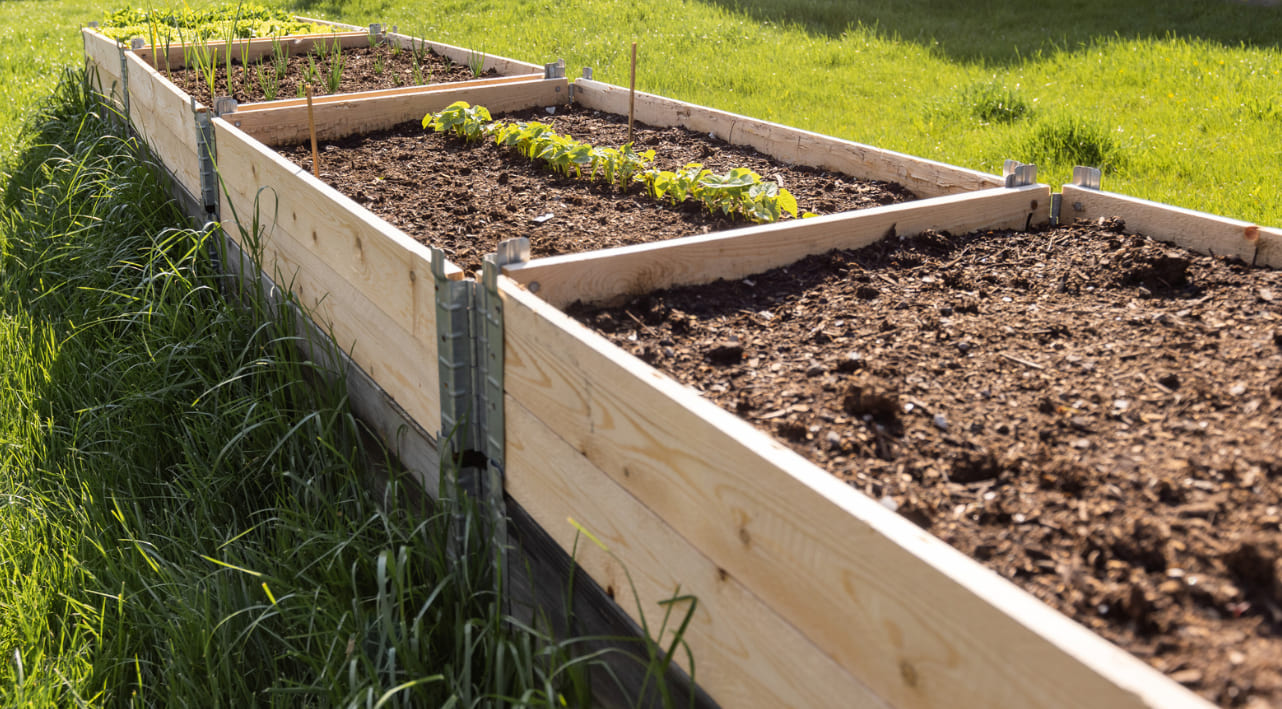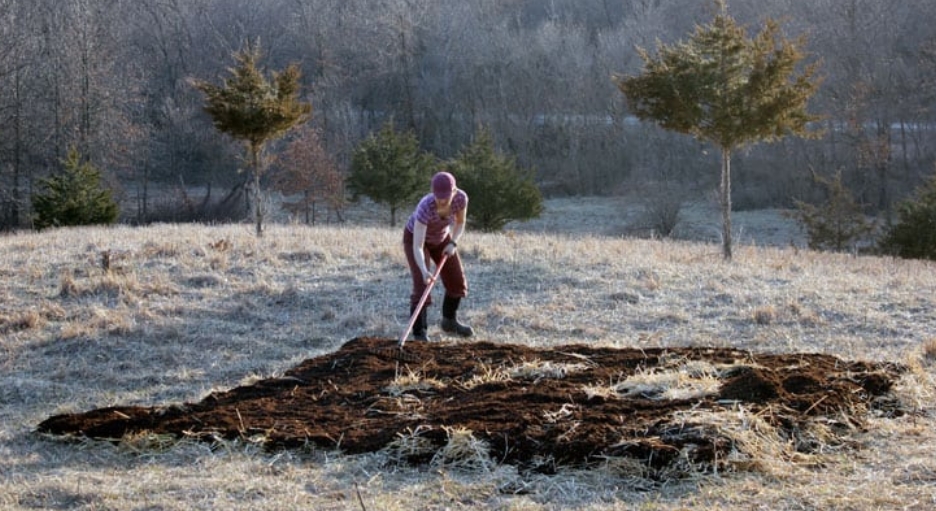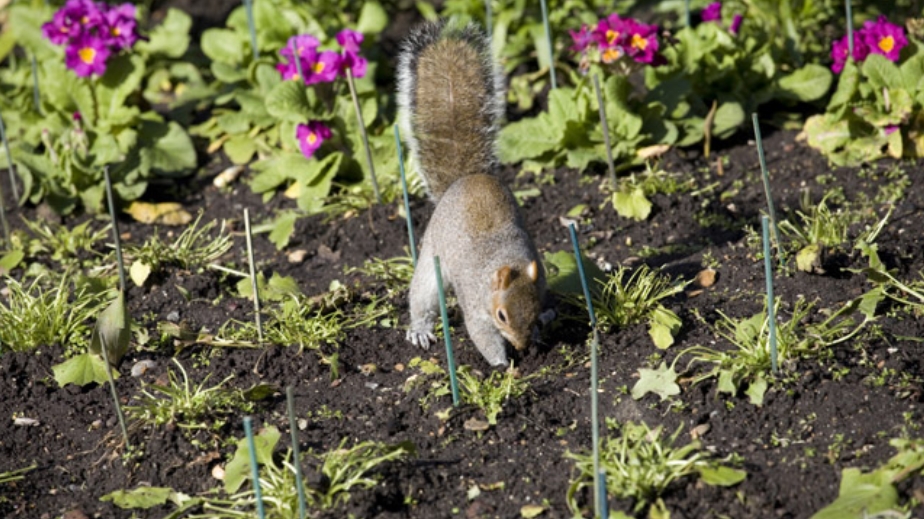
Ants are often considered a gardener’s nemesis when they invade raised garden beds. While they play essential roles in nature, such as aerating the soil and controlling pests, their presence in garden beds can also be problematic. In this guide, we’ll explore the best ways to get rid of ants in raised garden beds while ensuring your garden stays healthy and thriving.
Table of Contents
Why Are Ants in Your Raised Garden Bed?
Ants are attracted to your raised garden beds for several reasons. Typically, ants seek out sweet substances, such as nectar or aphids, which secrete a sugary liquid called honeydew. If your garden has aphids or other sap-sucking insects, ants will likely be present to harvest honeydew and protect these pests from predators.
Ants are also naturally drawn to organic matter in the soil, which is abundant in garden beds. Some species, like carpenter ants, may even nest in the soil or decaying wood near your garden.
While their presence isn’t always harmful, ants can become a problem if they disrupt seedlings or invade your plants in large numbers.
Will the Ants in Raised Garden Beds Eat My Seeds?
You may worry about ants eating your seeds, but fortunately, ants generally do not consume seeds. However, they can disturb seeds by moving them around searching for food or nesting sites. This is particularly true in raised garden beds where ants can access soil more easily.
If ants are active in your garden, they may cause minor damage to young seedlings but are unlikely to eat your seeds directly. Some species, however, may inadvertently interfere with seedling development by creating tunnels that disrupt soil structure.
Methods to Get Rid of Ants in Raised Garden Beds
If you find that ants are becoming a nuisance in your raised garden beds, there are several methods you can try to control their population.
Natural Deterrents
One effective way to repel ants is using natural deterrents like cayenne pepper, cinnamon, or essential oils. Sprinkle the substances around the raised bed to create a barrier that ants are unlikely to cross. This method won’t harm the ants but can help reduce their numbers and encourage them to move elsewhere.
Diatomaceous Earth
Food-grade diatomaceous earth is another natural option for ant control. This fine powder is made from the fossilized remains of aquatic organisms and works by dehydrating ants and other pests. It’s safe for use around humans and plants, but it must be applied in dry conditions to be effective.
Ant Traps
Another simple solution involves making your own ant traps. Mix equal parts sugar and borax (or boric acid), place the mixture near ant nests, and let the ants carry it back to their colony. This method slowly eliminates the colony over time. However, it’s essential to keep the mixture away from pets and small children, as borax can be toxic if ingested.
Preventing Ant Infestation in Raised Garden Beds
Preventing ants from taking over your raised garden beds is just as important as getting rid of them. Here are a few strategies you can use:
- Remove Organic Debris: Clean up any decaying plant matter, such as fallen leaves, rotting fruit, or other organic debris that can attract ants.
- Use Ant-Repellent Plants: Plant herbs like mint, lavender, and rosemary, which naturally repel ants. These plants can create a barrier around your garden beds, reducing ant activity.
- Regular Garden Maintenance: Keep your garden tidy by regularly checking for and removing pests such as aphids, which can attract ants due to their honeydew secretion.
How Ants Can Actually Benefit Your Garden
While ants can be a nuisance, they also benefit your garden ecosystem. Here’s how ants help maintain a healthy garden:
- Pest Control: Ants are natural predators of many pests, such as aphid eggs and larvae. They help keep these harmful insects in check, preventing them from damaging your plants.
- Soil Aeration: Ant tunnels provide channels for water, oxygen, and nutrients to reach plant roots, which can improve soil health and enhance plant growth.
- Pollination: While ants aren’t as effective as bees, they can contribute to pollination by transporting pollen from one plant to another while foraging for food.
Dangerous Ants to Watch Out For
Not all ants are beneficial, and some species can be quite destructive or even dangerous. Fire ants, for example, are notorious for their painful stings, which can be hazardous to both humans and pets. Carpenter ants, while not stinging ants, can cause significant damage to wooden structures and plants by nesting in the soil or wood.
If you encounter these aggressive species in your garden, it’s crucial to take immediate action to control their population. Fire ants, in particular, can swarm and sting when disturbed, making gardening a painful experience.
Using Chemical Treatments for Ant Control
When natural methods don’t provide sufficient control, you might consider using chemical treatments such as insecticidal sprays or ant poisons. These products can be effective but should be used with caution, especially in vegetable gardens. Always follow the manufacturer’s instructions, and ensure that the chemicals won’t harm beneficial insects or pollinators.
While chemical solutions can be effective in eliminating ants, they may have long-term environmental effects. For this reason, it’s generally recommended to reserve them for severe infestations or when other methods have failed.
Should You Worry About Ants in Your Garden?
While it’s understandable to want to eliminate ants from your raised garden bed, it’s important to consider the potential benefits they offer. Ants can provide valuable pest control and improve soil health, so it’s best to only intervene when their numbers become excessive or when they threaten your plants.
By using a combination of natural deterrents, preventive measures, and targeted control methods, you can maintain a healthy, thriving garden without disrupting the ecosystem.
Final Thoughts: Dealing with Ants in Your Raised Garden Bed
Summary of Key Points:
- Ants play both positive and negative roles in raised garden beds.
- They help control certain pests and improve soil health but can become problematic if their numbers increase.
- The key is to find a balance between appreciating their role in the ecosystem and managing their population when necessary.
Practical Tips for Balancing Garden Health with Ant Management:
- Regular Garden Maintenance: Keep the garden clean by removing decaying organic matter that attracts ants.
- Use Beneficial Ant-Control Methods: Opt for natural deterrents such as diatomaceous earth, essential oils, or natural ant-repelling plants.
- Monitor Ant Population: Regularly inspect your raised garden beds for ants and signs of aphids or other pests.
- Know When to Intervene: If ants are causing damage to seedlings or supporting problematic pests like aphids, take action with targeted control methods.
- Respect Ants’ Benefits: Recognize that ants can be allies in controlling certain pests and improving soil aeration.



